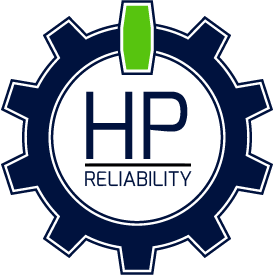How To Save Time As A Maintenance Professional
 You are running from one meeting to another, to a breakdown, to the storeroom and at the end of the day you stop and think. What did I really get done today? The day was busy, but did you accomplish what you wanted to or will make a difference in the long run?
You are running from one meeting to another, to a breakdown, to the storeroom and at the end of the day you stop and think. What did I really get done today? The day was busy, but did you accomplish what you wanted to or will make a difference in the long run?
The organization needs to focus on effective maintenance, and as a maintenance professional you need to be effective with your time. Only if you are effective with your time, can you drive the organization and the maintenance program forward. Being a maintenance professional it can be difficult to discern between the urgent and important and it is easy to get caught up in the rat race.
This will be a 4-part series on how a maintenance professional can free up time in their day and be more effective in driving their goals forward.
Effectiveness vs Efficiency
Effectiveness is doing the right things. These things or activities should be activities that work to move the goals of the department or organization forward. These are typically the strategic activities that will ensure sustainable success. Effectiveness can be related to the prioritization activities in the Planning & Scheduling process, ensure the right work is completed.
Efficiency is doing things right. This involves minimizing the amount of time or effort when doing the right things. Efficiency is looking to do more with less. Efficiency can be related to the process of job planning. By planning a job, you can eliminate barriers and ensure a job is doing quickly.
Effectiveness should always come before efficiency, because if you are not focusing on the right things, it does not matter how well you do it.
Discerning Between Urgent and Important
So how does a maintenance professional organize their day to ensure that they are being effective? One method is to categorize activities into 4 groups and focusing on the groups in a methodical manner.
- Start by categorizing the activities you need to accomplish into the 4 groups;
- Urgent & Important: tasks that need our immediate attention and also work towards fulfilling our long-term goals and missions. Urgent & Important tasks typically consist of crises, problems, or deadlines. Some examples include; i) certain emails, ii) report deadlines, iii) major breakdown, iv) injury investigation
- Not Urgent & Important: are the activities that don’t have a pressing deadline, but nonetheless help you achieve your important goals as well as help you fulfill your mission. These activities are focused around strengthening relationships, and planning for the future. Some examples include; i) Weekly planning, ii) Long-term planning.
- Urgent & Not Important: are activities that need our attention now (urgent), but don’t help us achieve our goals or fulfill our mission (not important). Most tasks here are interruptions from other people and often involve helping them meet their own goals and fulfill their own priorities. Examples include; i) Phone calls, ii) Text messages, iii) Most emails (some emails could be urgent and important), iv) Co-worker who comes by your desk during your prime working time to ask a favor.
- Not Urgent & Not Important: activities aren’t pressing nor do they help you achieve long-term goals or fulfill your mission. They’re primarily distractions. Examples include; i) meetings in which you have not input or take any actions, ii) reports that are not used to for anything.
By using this method, you will be able to move your maintenance program forward and achieve the business goals. As within maintenance, prioritization is critical to the success of the program.
Another method is the Getting Things Done methodology. This method gets all the information out of your head, into a trusted filing system, and includes a prioritization system based on your high level goals. This methodology has a tremendous following and has proven successful in virtually all applications. For more information, please get a copy of the book. Do you have a method to ensure you are being effective in your everyday activities? If so what how does it work? If not, do you feel overwhelmed and have a sense not moving forward?
Only when you are effective and efficient can you move the department and team forward in a sustainable manner. In the next post, we will discuss how a maintenance professional can reduce the amount of emails and the time they spend on emails.
I’m James Kovacevic
Eruditio, LLC
Where Education Meets Application
Follow @EruditioLLC
References:
Getting Things Done[/fusion_builder_column][/fusion_builder_row][/fusion_builder_container]
